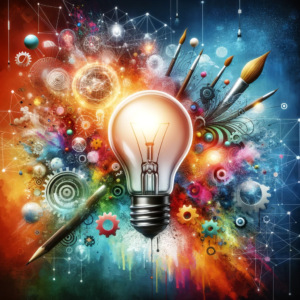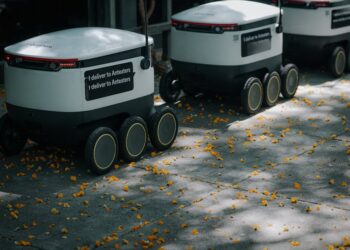No products in the cart.
AI IN Music: How Artificial Intelligence is Composing the Hits of Tomorrow
Discover the revolutionary impact of AI in the music industry, from sophisticated composition tools like OpenAI's MuseNet and Jukebox to production platforms such as Beatoven.ai and Boomy. Learn about the ethical implications and creative possibilities this technology brings to musicians and producers.
Artificial Intelligence (AI) is revolutionizing the music industry, transforming how music is created, produced, and experienced. This exploration delves into AI’s multifaceted role in music creation, highlighting real-world applications, tools, and the implications of this technology on the art form.
AI-Powered Music Composition
AI’s capability to compose music has grown remarkably sophisticated. One of the pioneering tools in this field is OpenAI’s MuseNet, which uses a deep neural network to generate complex musical compositions across various styles, from classical to contemporary genres. MuseNet can mimic the styles of famous composers and combine different genres seamlessly, offering a unique blend of creativity and technology.
OpenAI’s Jukebox takes this further by generating raw audio in a variety of styles, from rock to classical, and even creating full-length songs with coherent musical structures. This tool can condition its compositions on specific genres and artists, allowing for highly customized outputs.
 Business
BusinessA No-Nonsense Guide to Creating Killer Product Ideas (that don’t suck)
Discover the art of crafting groundbreaking product ideas with our comprehensive guide. From market research to prototyping, learn everything you…
Similarly, tools like AIVA (Artificial Intelligence Virtual Artist) focus on creating orchestral compositions and have been used in film scoring and video game music. AIVA’s algorithms analyze thousands of musical scores to generate new compositions that can be customized to match specific moods or themes.
Platforms like Beatoven.ai and Soundful allow users to create royalty-free music tailored to their needs.
AI Tools for Music Production
The production side of music has also seen a surge in AI applications. Platforms like Beatoven.ai and Soundful allow users to create royalty-free music tailored to their needs. Beatoven.ai uses advanced algorithms to generate mood-based music, which is particularly useful for content creators looking to enhance their videos or podcasts with bespoke soundtracks.
Boomy is another popular tool that democratizes music creation by enabling users to generate original songs quickly. Boomy allows users to adjust various elements like tempo, key, and instrumentation, and even submit their songs to streaming platforms.
Ethical and Creative Implications
The integration of AI into music creation raises several ethical and creative questions. One major concern is the potential for AI to diminish the role of human creativity. While AI can produce music that sounds professional and polished, some argue that it lacks the emotional depth and nuance that come from human experience and expression. This debate touches on broader issues about the nature of creativity and the uniqueness of human artistry.
 Economic Policies
Economic PoliciesThe Hidden Beneficiaries of Free Education Policies
Free education policies promise to uplift low-income and marginalized groups. But who truly benefits? Dive into the data and stories…
Read More →Moreover, there are concerns about copyright and ownership. As AI-generated music becomes more prevalent, determining the ownership of such works—whether it belongs to the programmer, the user, or the AI itself—becomes a complex legal challenge. This ambiguity could lead to significant changes in how music rights are managed and enforced.
Musicians’ Perspectives on AI
Musicians have varying opinions on the use of AI in their craft. Some, like Grammy-winning artist Taryn Southern, embrace AI as a collaborative tool that expands their creative possibilities. Southern used AI to co-create her album “I AM AI,” leveraging tools like Amper Music to compose and produce tracks.
While AI can produce music that sounds professional and polished, some argue that it lacks the emotional depth and nuance that come from human experience and expression.
Others are more cautious, emphasizing the need to maintain a balance between technological assistance and human input. They argue that while AI can handle repetitive and technical aspects of music production, the core of musical expression should remain human-driven.
 Crypto & NFT
Crypto & NFTCoinbase Arrests Former Agent in India Over Customer Data Breach
Coinbase's former customer service agent was arrested in India for allegedly helping hackers breach customer data. This incident raises questions…
Read More →AI is undoubtedly reshaping the music landscape, offering exciting new tools and capabilities for artists and producers. While it brings unprecedented opportunities for creativity and efficiency, it also prompts important discussions about the future of artistic expression and the ethical considerations surrounding technology in the arts. As AI continues to evolve, its role in music will likely become even more integral, blending the lines between human and machine creativity.











